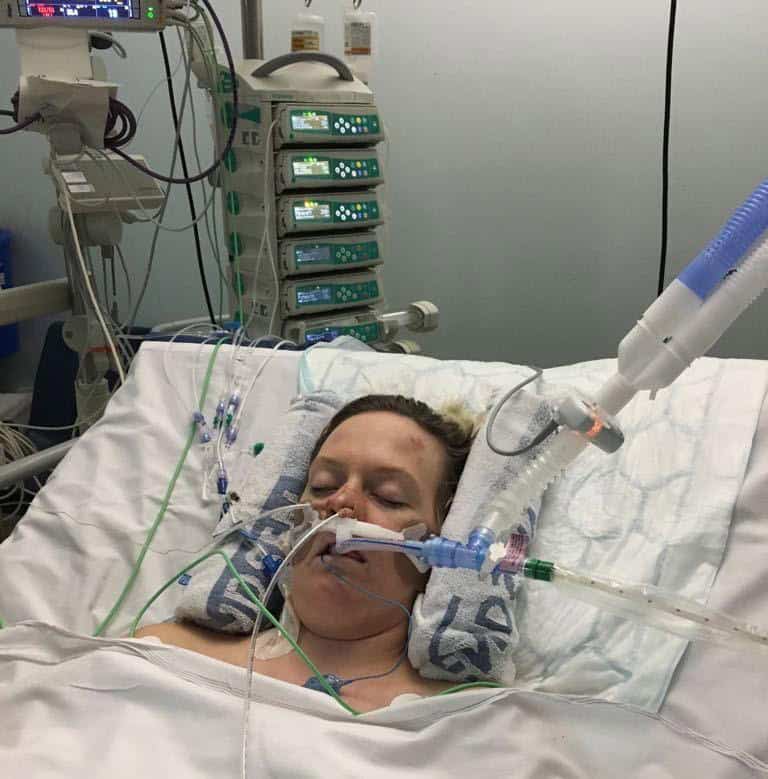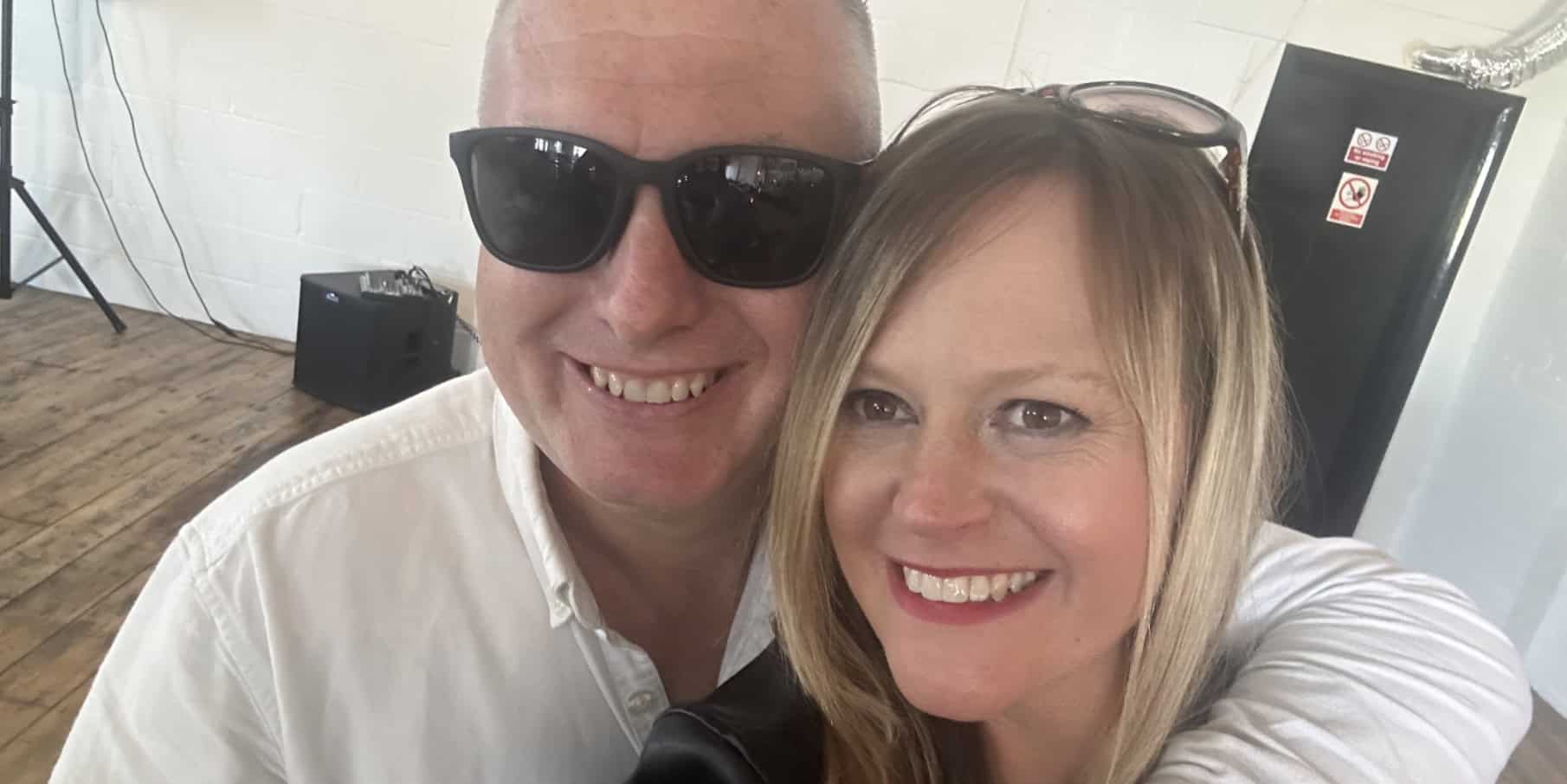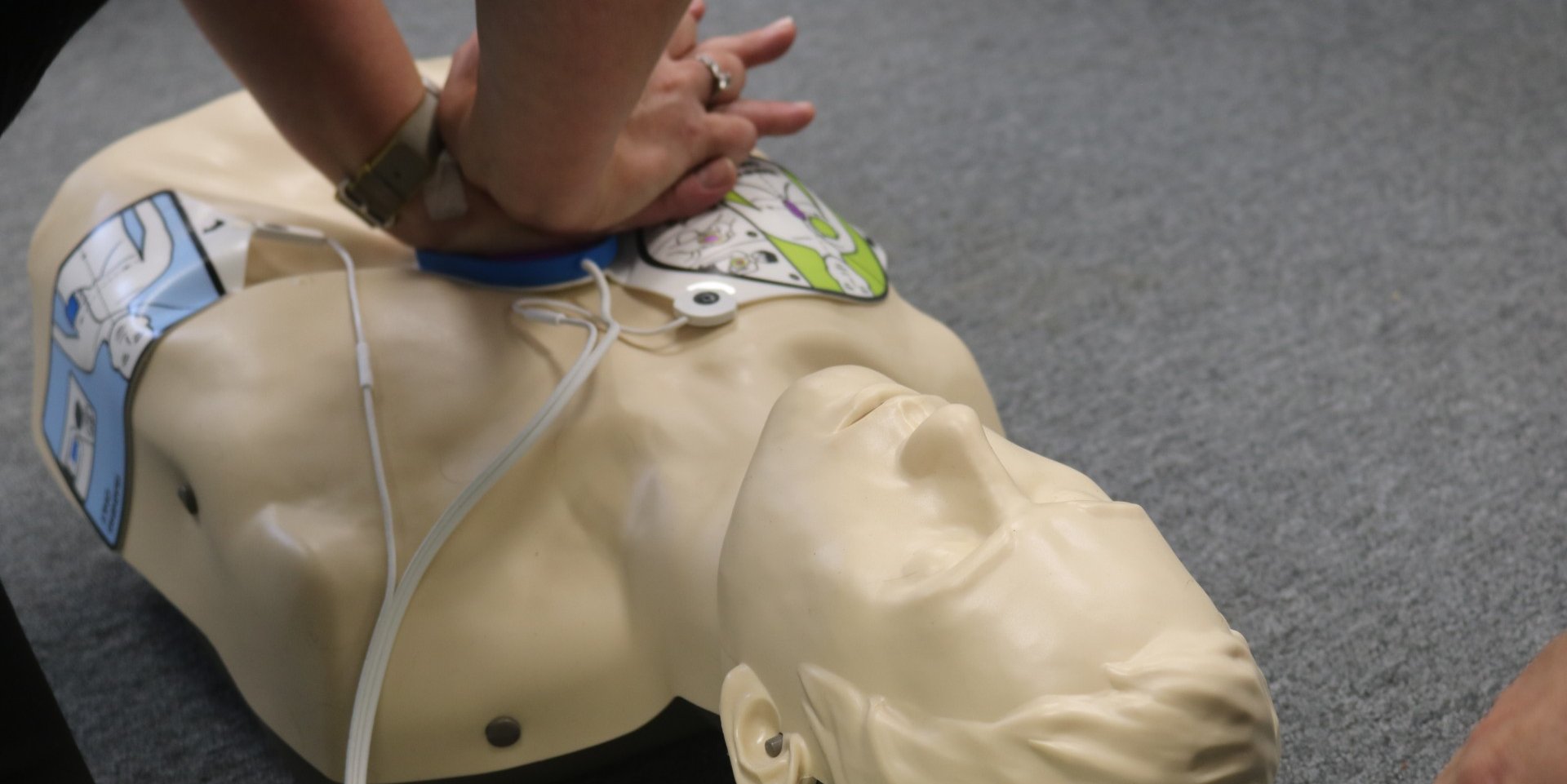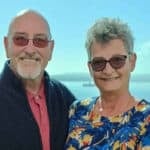The team at Isle of Wight Ambulance Service (IWAS) are asking how confident you feel in responding to someone needing lifesaving care to restart their heart this Valentine’s Day.
In 2024, the IWAS team responded to more than 270 cardiac arrests in the community and want to remind everyone how important it is to know what to do if someone stops breathing and needs your help.
Collapsed at work
In 2018, Laura Summers (pictured below), a 32-year-old teacher on the Isle of Wight, was going about her usual day when she began to feel unwell and collapsed. Her colleague contacted others who came to help, found she wasn’t breathing and luckily knowing CPR were able to start that immediately. The fantastic group that came to Laura’s aid gave CPR until the ambulance arrived.
They also knew she needed to access a defibrillator – a machine that uses electricity to shock the heart – but unfortunately the nearest one was locked. By the time they were able to access it, Laura had been without oxygen for around eight minutes. An individual’s chances of survival can decrease by as much as 10-12% per minute when defibrillation is delayed.
Partially breathing
In the time before the ambulance arrived, the quality of CPR given and two shocks from the defibrillator, were able to get Laura partially breathing. CPR continued in the ambulance as Laura was rushed to hospital and admitted into the Intensive Care Unit at St Mary’s Hospital.
The diagnosis was that she may not survive and her family including two young children were told after a few days it may be time to say goodbye to her.
In good health
Laura had no previous medical conditions that explained what had caused her to go into cardiac arrest.
Incredibly Laura began to improve and seven days after the incident, she was well enough to be transferred to Portsmouth where she was fitted with an internal defibrillator. A day later, she returned home for her eldest son’s birthday.

Laura said,
“As a cardiac arrest survivor in the situation I was in, my chances of survival were significantly reduced by not having an unlocked defibrillator. For me the biggest message on this is defibrillators need to be unlocked and easily accessible.
“The more we have out there the greater the chances of survival are, and the more people aren’t scared to use them and know that whatever they do is better than doing nothing is what we need to spread.”
Check defibrillator is registered
Anyone with a publicly accessible defibrillator should check it is registered on The Circuit so it can be located and deployed in an emergency. Doing this helps improve access and reduce delays to life saving treatment like that given to Laura.
Keeping these unlocked also helps speed up access, and despite concerns around vandalism, the number of unlocked defibrillators vandalised over the last five and a half years is remains low at 0.4%. To find out where your nearest defibrillator is visit the Defib finder website.
Thanks to the work of Isle of Wight Ambulance Service, its partners and numerous charities and community organisations, there are currently more than 540 registered public access defibrillators on the Isle of Wight.
Walker: Cardiac arrest can happen to anyone, anywhere
Louise Walker, Head of Education and Community Response at Isle of Wight Ambulance Service, said,
“Laura’s story and that of many of the cardiac arrest survivors we see shows how important it is for there to be easy access to a defibrillator in an emergency.
“Cardiac arrest can happen to anyone, anywhere and we often hear people are worried about started chest compressions (CPR) on someone who isn’t breathing in case they hurt them.
“Even if you aren’t an expert, starting CPR can double someone’s chances of survival and you aren’t going to make it any worse for that person from trying.”
Howto learn CPR skills
If you have no CPR awareness, there are lots of places you can find out about training opportunities near you including the Resuscitation Council UK.
The British Heart Foundation also has a community fund which eligible organisations such as social clubs, community centres and places of worship can apply to for a free funded defibrillator if there is not one already nearby.
“Every second is precious, and every minute is lifesaving”
Seven years on, Laura feels it is just as important now to raise awareness about how to help someone in cardiac arrest including amongst the children at her school who have been taught vital CPR skills by the Isle of Wight Ambulance Service team.

She added,
“Every delay, delays a chance of survival. Every second is precious, and every minute is lifesaving. I am still here against the odds, back to work and can even see the field I collapsed in.
“That’s very hard but makes me realise how lucky I am to be here. If it wasn’t for the defibrillators and the knowledge of my colleagues in giving such quality CPR, I wouldn’t be here. My husband wouldn’t have a wife and my children wouldn’t have their mum.”
News shared by Isle of Wight NHS Trust, in their own words. Ed





